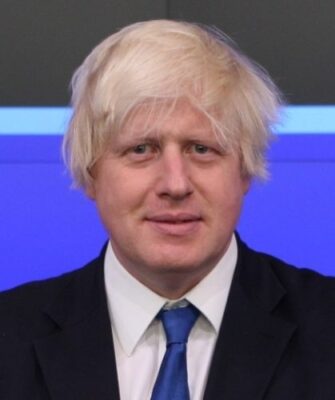By Lucy Caulkett
Foreign Secretary, Boris Johnson, was at odds with Downing Street over comments he made in relation to Saudi Arabia.
The Guardian released footage in which Boris Johnson was recorded saying a lack of strong leadership meant politicians in the region of Saudi Arabia were “twisting and abusing religion and different strains of the same religion to further their own political objectives”.
The video of Mr Johnson speaking at the Med 2 conference in Rome last week reveals him commenting that “you’ve got the Saudis, Iran, everybody, moving in and puppetering and playing proxy wars”, referring to it as a tragedy.
The foreign Secretary went on to accuse UK ally Saudi Arabia of “abusing” Islam and “puppeteering” proxy wars in the Middle East.
Downing street was quick to distance themselves from what was viewed as a blunder when its spokesperson told Sky News: “These are the Foreign Secretary’s views, they are not the Government’s views on Saudi Arabia and its role in the region.
Johnson’s criticism had some good points in that he was encouraging leadership and trying to promote integration in Saudi Arabia. In relation to leadership values, Boris Johnson said:
“We need to have some way of encouraging visionary leadership in that area,” Mr Johnson said. “People who can tell a story that brings people together from different factions and different religious groups into one nation.”
The problem with Johnson’s comments is that it is against general protocol and such criticisms are normally the job of journalists to do, not a Foreign Secretary acting on behalf of a country that is an ally of the one being criticised.
Boris Johnson’s job assumes a diplomatic role and every time he comments publicly, he is essentially representing the government. As the foreign secretary of the U.K government, Johnson cannot be expressing views strongly at odds with the government, despite being entitled to his views. Strong opinions he holds about allies of the UK should be expressed privately and away from the cameras if the foreign secretary wishes to have an influential impact on any given areas.
Boris Johnson’s unwelcome comments adds to a list of other blunders he has made. Johnson was heavily criticised for his comments against Obama this year, in which he insinuated that the decision of Obama’s administration to remove a bust of Britain’s war time leader, Winston Churchill from the Oval office was viewed by some as a symbol of his part time Kenyan ancestral dislike of the British empire of which Churchill was a fervent defender. Johnson later referred to Africa as ”a country” in a blunder that puzzled observers and commentators.
Johnson, who was a frontrunner for the prime ministers job before Theresa May got the job, was the Mayor of London and an established member of the House of Parliament. He was also a newspaper columnist and has also written a number of books including one on the biography of Winston Churchill. He is very accomplished in politics but should take more care when expressing himself in public because of his high and sensitive office.

